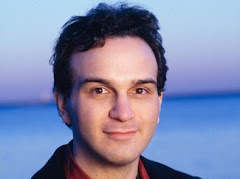Having missed previous Stéphane Denève concerts here in Kuala Lumpur with the Malaysian Philharmonic Orchestra, I was determined not to miss his Russian Fairytales concert especially when it also featured Renaud Capuçon, the premier French violinist of our times.
The opening piece was Tchaikovsky's Andante Cantabile, which was the adapted second movement for string orchestra from his First String Quartet Op 11. Denève drew the most luscious and velvety string textures from the muted MPO strings, often fining down the already soft tones to an even more hushed dynamic and giving us a most moving interpretation of this short but beautiful movement.
We next heard a terrific account of Bartók’s kaleidoscopic Second Violin Concerto. With Denève and the MPO taut and disciplined, this provided an ideal stage for the soloist Renaud Capuçon, a rich-toned and fearlessly virtuosic protagonist, to shine in the Bartók concerto.
Bartók offers the violinist almost no respite for the concerto’s 36-minute duration. Capuçon was indefatigable, supple and assuredly precise as he navigated the rapid transitions in this mercurial score - by turns lyrical, mocking, joyful and playful. His technical assuredness was awe-inspiring and he produced a round, warm sound that at its loudest easily carried to the furthest extremes of the DFP Hall without distortion, while at its softest, excelled with clearly defined delicacy.
His reading of Bartók’s complex score drew attention to many fine details, with crystal clear phrasing that was subtle and playing that was full of pathos. The pin-point clarity of the fastest sections, the brilliant crispness of the demanding chordal passages and his multi-faceted vibrato allowed the concerto to shine brightly.
Aided by a superb François Tourte bow, Capuçon's 1737 "Panette" Guarneri del Gesù sang throughout uninhibitedly with rich lower string tones, reminiscent of a powerful cello, whilst the upper strings had a rounded warmth as well. It was one of the two best sounding Guarneri del Gesù violins I had heard in over 35 years of concert-going, the other being the 1741 "ex-Kochanski" del Gesù, on which Aaron Rosand performed the Tchaikovsky Violin Concerto.
After tumultuous applause, Capuçon gave us his possibly favourite encore piece, Gluck's Dance of the Blessed Spirits from Orfeo ed Euridice. Played solo sans any accompaniment, it afforded us another chance to appreciate the chased golden tones that this superb violin could muster.
Despite a brilliant performance of the Bartók, the comment amongst the most experienced Kuala Lumpur concertgoers was that they could not appreciate the concerto. Perhaps, Capuçon could offer us the Lalo Symphonie Espagnole or the Vieuxtemps Fourth or Fifth Violin Concertos on his next visit to KL.
After the interval, we heard two top Russian composers' musical impressions of fairy tales - those of Prokofiev's Cinderella Suite and Tchaikovsky's Sleeping Beauty Suite. Although Prokofiev later distilled the ballet into a triptych of orchestral suites, Denève elected to cherrypick his preferred excerpts – twelve in all, lasting some 30 minutes in a more or less chronological sequence.
In the Prokofiev, somber strings characterised the Introduction whilst the Shawl Dance exuded nervous energy and showcased the scintillating clarinet playing of Gonzalo Esteban. Sumptuous cello lines were at the heart of the Grand Waltz, whilst the most captivating movement had to be that of the clock; riotously signalling the midnight hour with lurching brass, screeching winds and "ticking" woodblocks, as Denève give it full, terrifying force like a clock that had gone entirely mad.
The second half ended gloriously with Tchaikovsky's Sleeping Beauty Suite, that enabled us to luxuriate in its rich and ravishing sound world which Denève and the MPO replicated passionately. There was just the right amount of rubato. Denève allowed the music to speak for itself, with drama and passion where needed but with subtlety and magic when appropriate too.
Saturday, 7 October 2017
Denève's ravishing Russian Fairy Tales concert
Subscribe to:
Post Comments (Atom)

















































No comments:
Post a Comment